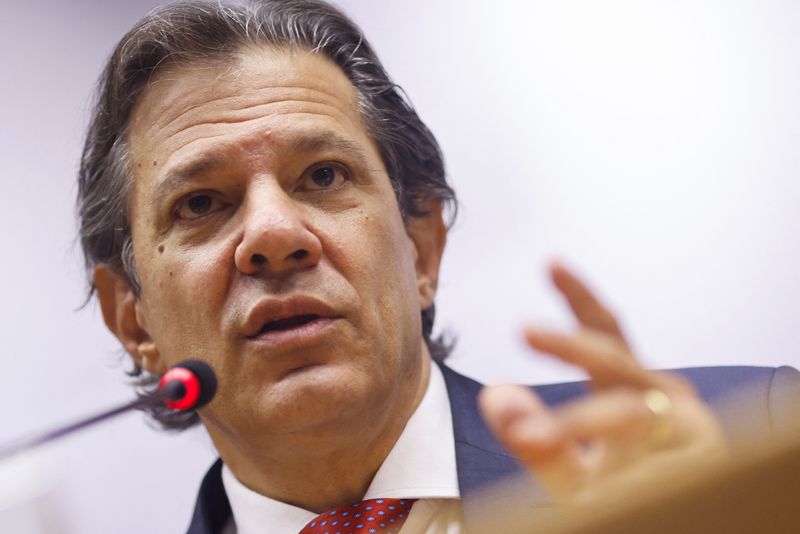
©Reuters. FILE PHOTO: Brazilian Finance Minister Fernando Haddad attends a news conference in Brasilia, Brazil, December 28, 2023. REUTERS/Adriano Machado/File Photo
BRASILIA (Reuters) – Brazil’s central government’s primary budget deficit reached 230.5 billion reais ($47 billion) in 2023, Treasury data showed on Monday, in a sharp fiscal deterioration that puts the official goal of breaking even this year is doubtful.
The annual deficit, equivalent to 2.1% of gross domestic product (GDP), reverses a 0.5% surplus in 2022 and represents the country’s second largest on record, lower only than 2020, when the government increased spending during the COVID pandemic.
The deficit follows December’s primary deficit of 116.1 billion reais, impacted by 92.4 billion reais disbursements to settle court-ordered payments.
The Brazilian government aims to eliminate the primary budget deficit this year, but markets have been skeptical about the chances of the pledge being met given last year’s significant fiscal expansion.
Asked at a news conference about the government’s confidence in meeting the goal, Treasury Secretary Rogerio Ceron stressed that the court-ordered payments represent a significant portion of the 2023 deficit.
“Looking ahead to 2024, we saw positive signs, in line with our planning,” he added, noting that revenue beat expectations in January.
In 2021, former President Jair Bolsonaro’s government enacted a constitutional amendment in Congress to impose an annual cap on court-ordered payments, leading to an unpaid backlog that President Luiz Inacio Lula da Silva’s administration subsequently addressed .
The 2023 annual deficit follows a 12.5% increase in real terms in spending, while the net revenue of the central government – made up of the Treasury, central bank and social security – fell by 2.2% over the year.
Excluding the impact of the court-ordered payments, the primary deficit for the year would have been 138.1 billion reais, still higher than the figures initially indicated by the left-wing government, which increased social spending.
Finance Minister Fernando Haddad took office promising to achieve a deficit equivalent to 1% of GDP this year, or about 100 billion reais. However, in recent months, he and his team have admitted that this goal would no longer be achievable.
Presenting the new fiscal rules, President Lula’s administration forecast an even more ambitious deficit of 0.5% of GDP for this year.
($1 = 4.9093 reais)